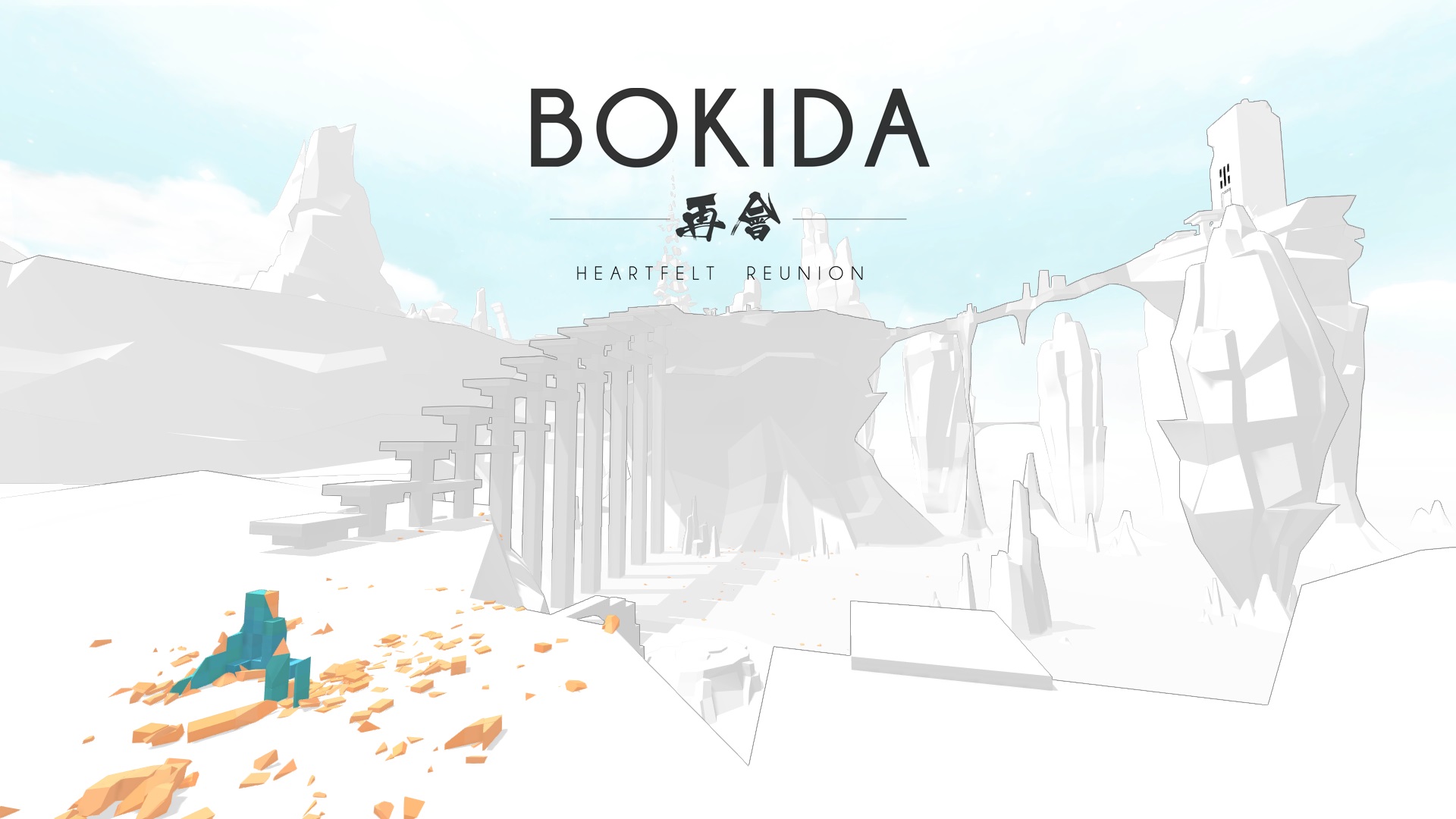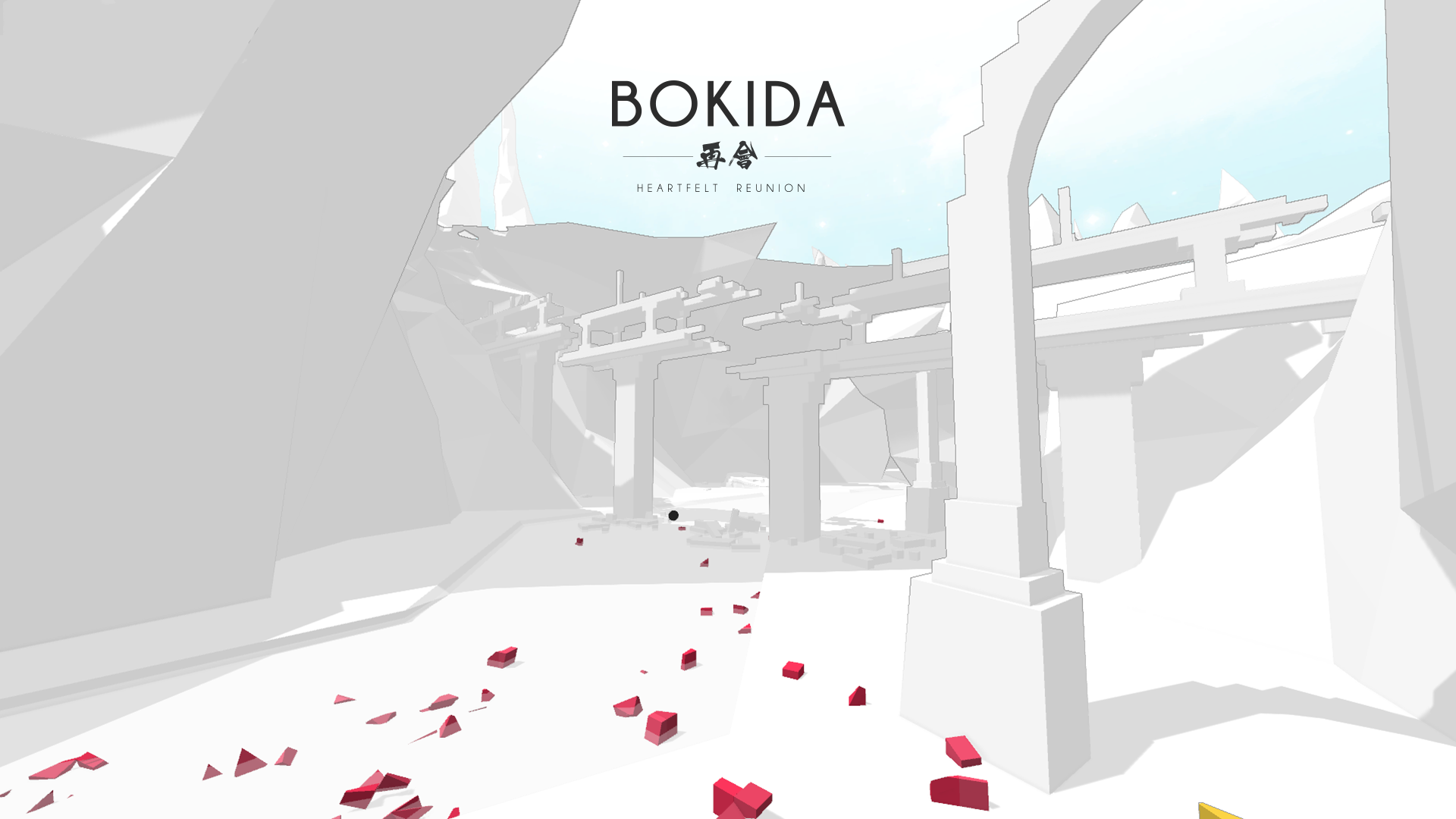Platform:
PC
Released:
May 17, 2017
Publisher:
Rice Cooker Republic
Developer:
Rice Cooker Republic
Bokida – Heartfelt Reunion is an abstract and surreal puzzling experience. Played from the first-person perspective, you explore a monochromatic open world and uncover the surprising wonder hidden within. With the ability to conjure blocks and slice those blocks into new shapes, the game will have you use the few skills you possess to solve its puzzles and progress its story.
The game has a very unique style to it. Entering into the open world landscape you’ll be met with intricately detailed architecture made with Minecraft style cubes. Everything around you is also white, meaning that landscapes and structures blur into one another and detail can be lost from a distance. The white world is very eye catching and unique to this game, although after spending a decent amount of time in the world, it did begin to weigh on me. Not noticing detail lost in the lack of colour or even just developing mild eye strain wasn’t fun. Having said that, even with its simple visual style, Bokida managed to impress me on multiple occasions with its architecture and the wondrous environments it was able to create. When the game added colour into its palette in fleeting sections, it was equal parts memorising and relieving.
There was also a lot of surrealism to Bokida’s story. The game is narrated in Korean, but even with English subtitles you never really understand what is going on. As you solve puzzles you grow a black shape in the sky that, as the game progresses, starts to become menacingly big. You can read into the game’s story as darkness taking over the white purity, but in the end the game does shape the story into a sought of ‘yin yang’ philosophy. So whether your actions were for the betterment of the environment or to its detriment is never really clear, and what the motivations of your character is never gets told, but this just allows players to form their own interpretation.

The world you occupy is actually surprisingly big. And at many points you aren’t totally aware of where you are suppose to go. The game hides its puzzles within the monochromatic environment and there are big stretches of running, climbing and gliding needed to move from one puzzle to the next. This meant that I ended up occasionally spending an unfortunate amount of time merely trying to track down puzzles, although the abilities you possess do make moving within the environment interesting. Building giant structures or poles out of blocks, jumping high, gliding, and propelling yourself forward towards a block you have built creates a sought of flight ability. The movement is slightly awkward, but at least it is earned.
The game’s mechanics can be boiled down into 4 main abilities when it comes to puzzle solving. Creating blocks, slicing those blocks to cut off sections, pushing cut off sections away, and erasing blocks you have created. The game does give you more abilities down the line but they are less for puzzle solving and more for “cool factor”. Using these four abilities you solve puzzles within the environment such as mimicking block formations or guiding a beam of light and bouncing it off your perfectly sliced blocks.
“A lot of the time I new the solution to the problem, the issue came with actually using the game’s mechanics to achieve that solution”
The puzzling was… okay. Sometimes the game felt quite limited in what it was able to do but other times it felt unique and captivating. Sometimes puzzles were re-used rather than having new, intelligent ways to use the same mechanics in a different fashion. But the biggest problem I had with Bokida was that the puzzling often felt inaccurate. A lot of the time I new the solution to the problem, the issue came with actually using the game’s mechanics to achieve that solution. Slicing seemed to be the biggest offender in this regard with very specific angles needing to be created to progress. This was an issue for me because puzzles are at their best when the mechanics are tight and controllable and the difficulty comes from figuring out a solution, not visa versa.
Whilst puzzling may not have always hit the mark, the game did have occasional set pieces and abstract story moments that gave progressing through it a worthwhile pay-off. Discovering early on that the world loops vertically was great, the underwater section was great, the rocks that floated as you moved were great, even the ending had its pay-off. And it was these moments that had me wanting to continue to play Bokida to see what was coming next.
Positive:
- Captivating style
- Intriguing mechanics
- Moments of awe
Negative:
- Imprecise puzzles
- Long travel times throughout the open world
Whilst not the perfect puzzle game, Bokida – Heartfelt Reunion has a unique and captivating style with some really interesting ideas. The mechanics it implements are simple, yet complicated enough to create some intriguing designs. Although, I’m not convinced Bokida utilised its mechanics to their full capacity. Puzzling was imprecise yet the world offered set pieces and story beats that were engrossing and surprising enough to make progressing through its abstract story a worthwhile experience.









